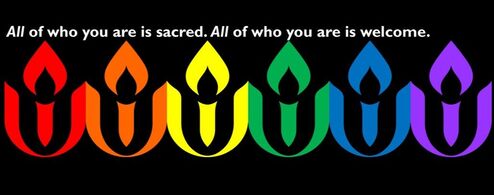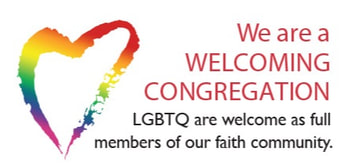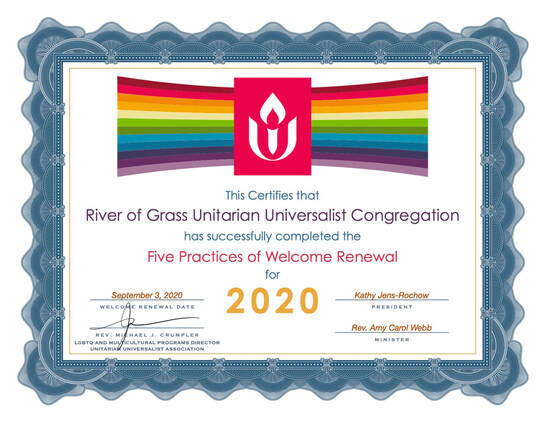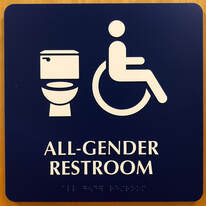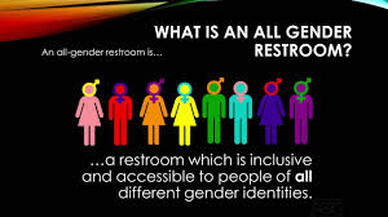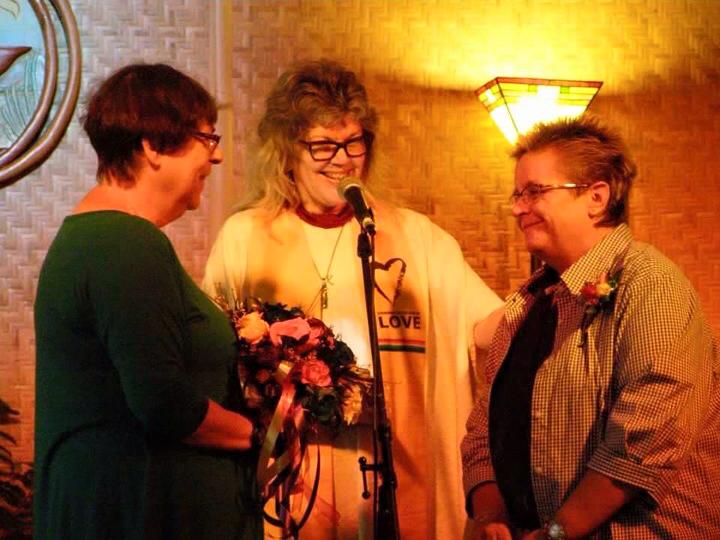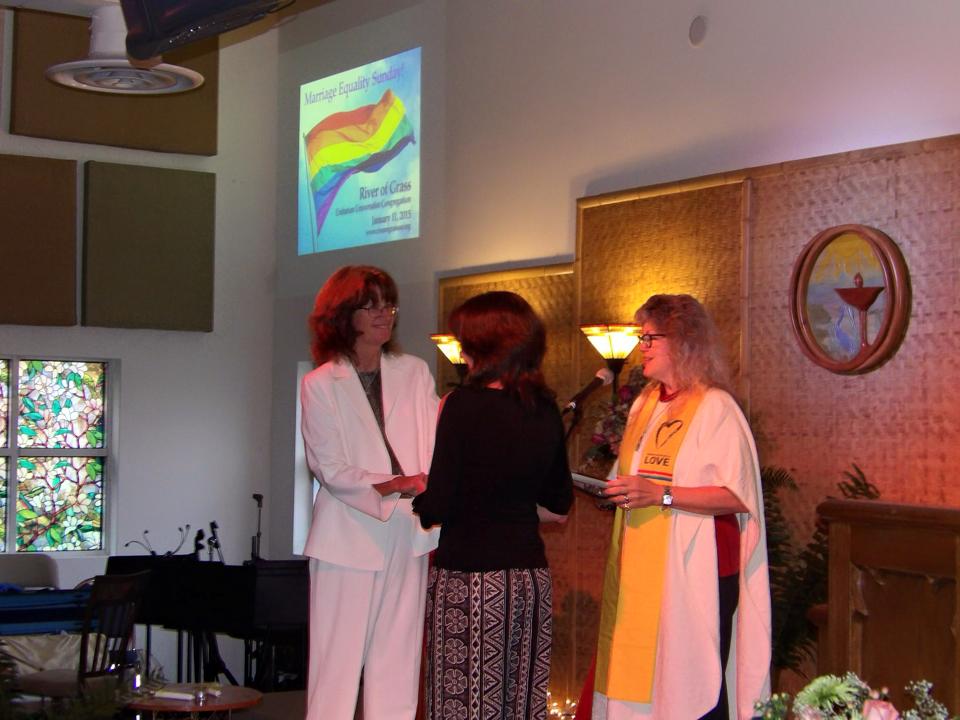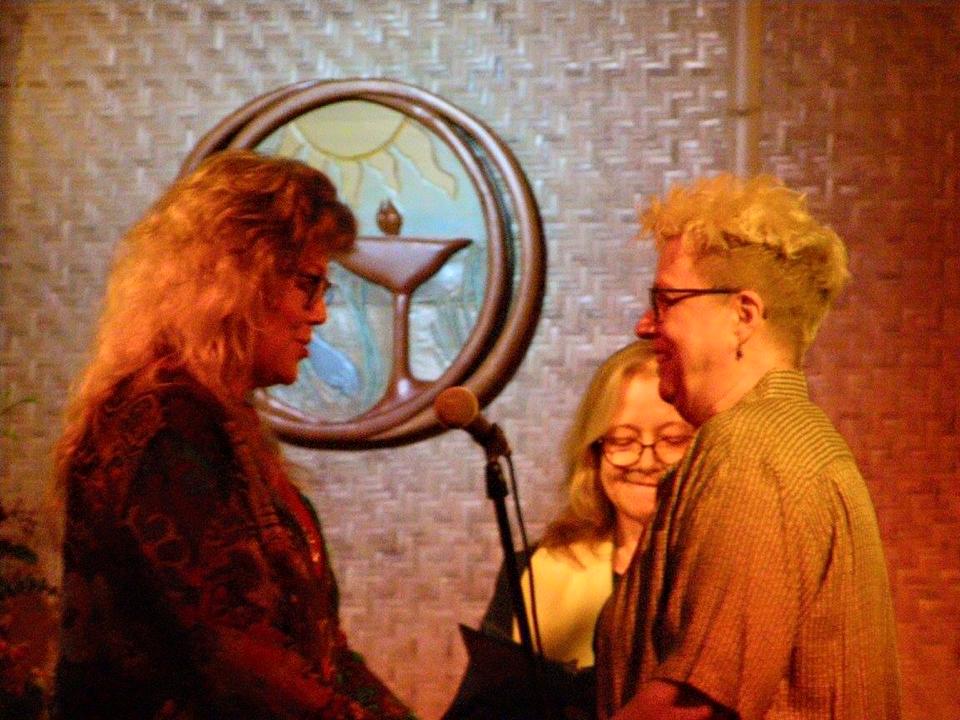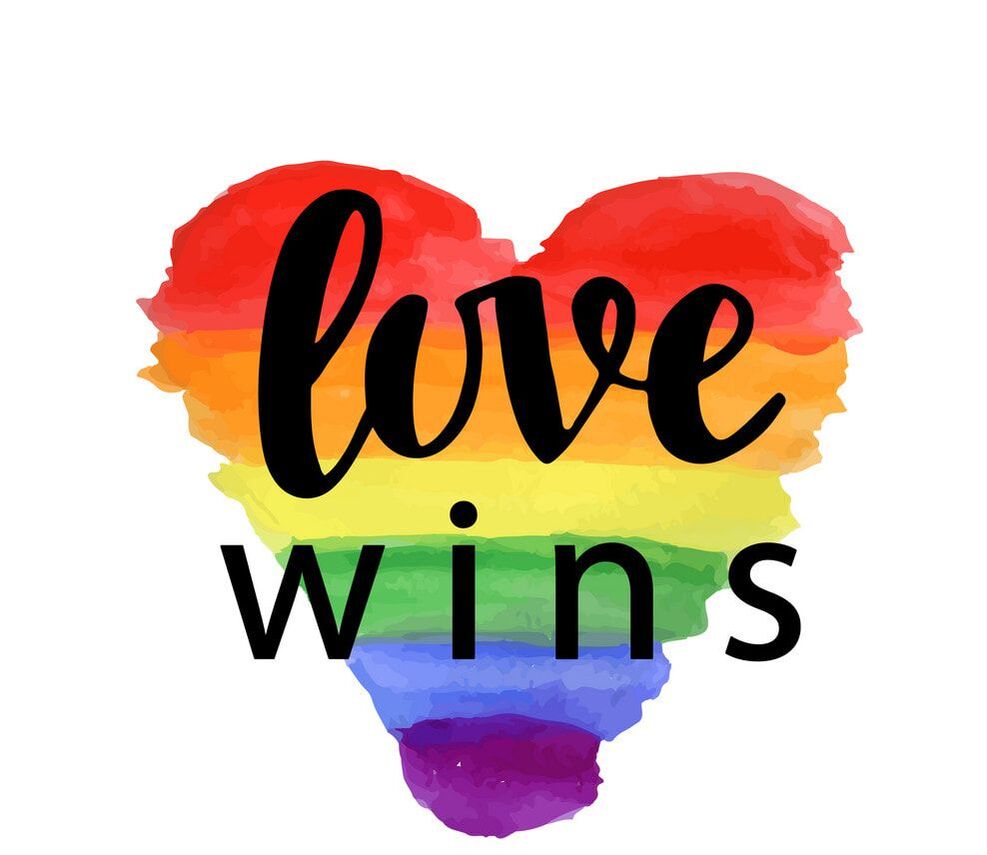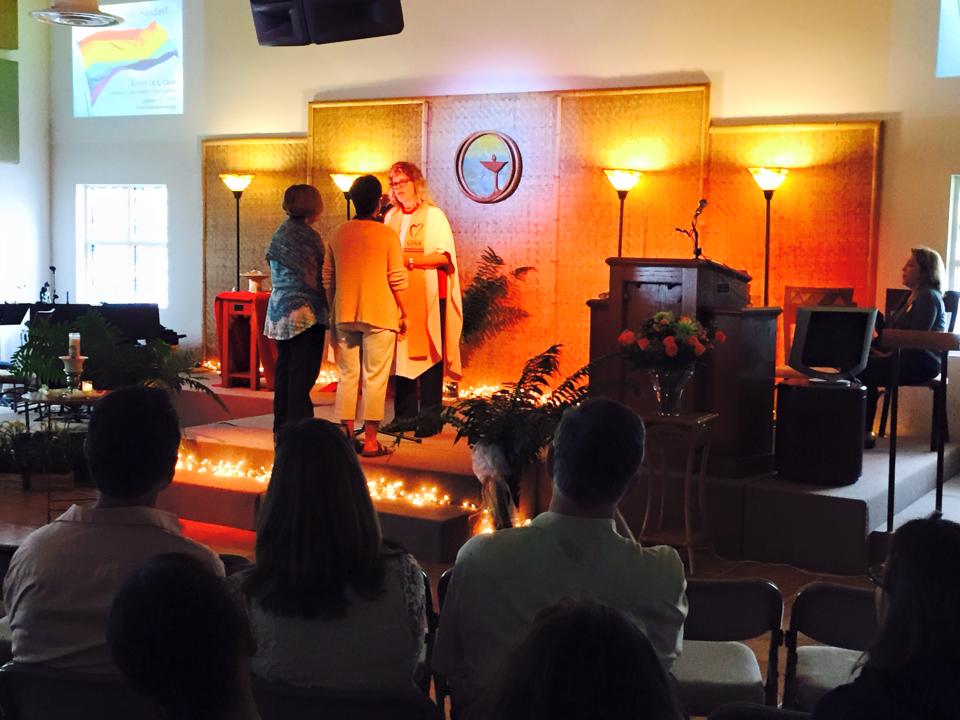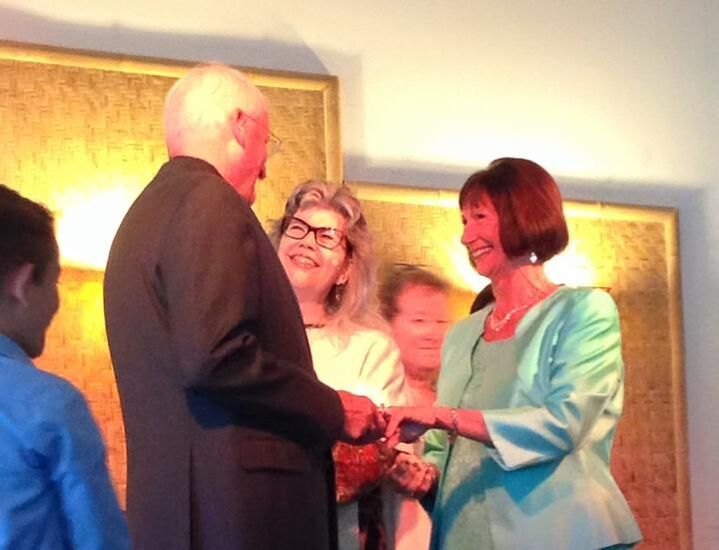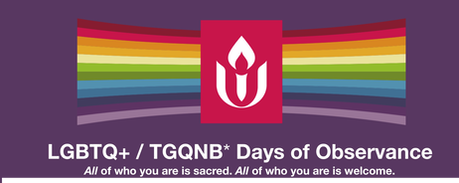The River of Grass UU Congregation has made a commitment to opening its doors to people of all sexual orientations and gender identities. Each of us has worth and dignity, and that worth includes our gender and our sexuality.
As Unitarian Universalists (UUs), we not only open our doors to people of all sexual orientations and gender identities, we value diversity of sexuality and gender and see it as a spiritual gift. We create inclusive religious communities and work for LGBTQ/TGQNB justice and equity as a core part of who we are. All of who you are is sacred. All of who you are is welcome.
What do we mean by Welcoming Congregation?
We know that religious spaces haven’t always been welcoming places for all people, especially when it comes to gender and sexuality. Unitarian Universalism is out to change that.
UUs have worked hard to make sure lesbian, gay, bisexual, transgender, queer, and non-binary people are full members of our faith communities. Being welcoming means striving for radical inclusion, and creating spaces that honor every part of our identities, backgrounds, and experiences.
Why does the Welcoming Congregation Program single out LGBTQ/TGQNB people for inclusion?
First launched in 1990, the program grew out of an understanding that widespread prejudices and ignorance about lesbian, gay, bisexual, transgender, queer, and non-binary (LGBTQ/TGQNB) people results in the exclusion of LGBTQ/TGQNB people from many religious communities.
Does this mean that we only welcome LGBTQ/TGQNB people?
We think it is important to be welcoming not only of LGBTQ/TGBQ people, but of all people, including (and not limited to), people of different genders, gender identities, races, ethnicities, ages, and abilities, as well as sexual orientations.
You might know the term LGBTQ but what does TGQNB mean?
The term LGBTQ stands for Lesbian, Gay, Bisexual, Transgender, and Queer while TGQNB stands for Transgender, Genderqueer, and Non-Binary.
Uplift, the UU Blog
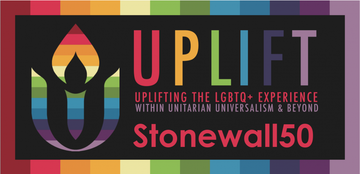
Subscribe to Uplift, the UU Blog that “Uplifts LGBTQ+ experience
within and beyond Unitarian Universalism.”
UPLIFT is a platform to highlight LGBTQ+ issues and concerns by featuring related programming, reflections, and content circulated in our quarterly email newsletter.
SUBSCRIBE NOW!
At River of Grass, We Take Our Safe-Space Commitment Seriously!
Wedding Celebrations at the River!
Welcoming Congregation Renewal Program
River of Grass was certified as a Welcoming Congregation on June 2, 2004. In the past 15 years, many things have changed for the better! Since we want to make sure that we are addressing all current LGBTQ issues, we have formed a Welcoming Congregation Renewal Team. As we move to renew our commitment to the LGBTQ community, we need to be aware of our historical UU LGBTQ awareness/support history. Below is a very abbreviated timeline. Here is a more complete listing.
UNITARIAN UNIVERSALIST LGBT HISTORY TIMELINE:
UNITARIAN UNIVERSALIST LGBT HISTORY TIMELINE:
- 1967 March—Unitarian Universalist (UU) Committee on Goals publishes results of its survey on beliefs and attitudes within the denomination: 7.7% of UUs believe that homosexuality should be discouraged by law; 80.2% that it should be discouraged by education, not law; 12% that it should not be discouraged by law or education; .1% that it should be encouraged.
- 1970 July—General Assembly General Resolution to end Discrimination against Homosexuals and Bisexuals. Calls on congregations to develop sex education programs that promote healthy attitude toward all forms of sexuality.
- 1971 Creation of About Your Sexuality (AYS) curriculum, which taught a more positive attitude towards homosexuality and bisexuality.
- 1972 Creation of the Invisible Minority, an adult curriculum about homosexuality.
- 1977 June--General Assembly Business Resolution to urge UUs to fight negative propaganda against gays.
- 1979 The Reverend Douglas Morgan Strong called to serve All Souls Church, Augusta, Maine, thus becoming the first out gay man in the UU ministry to be called to serve a congregation.
- 1986 June—General Assembly General Resolution that calls UUs to work to end AIDS discrimination through education and advocacy.
- 1987 June—General Assembly Business Resolution calls UUs to Support Legal Equity for Gays and Lesbians by working to overturn legislation restricting rights of gays and lesbians, including boycotting products and services of organizations that have a policy of discrimination.
- 1989 June--General Assembly Business Resolution to adopt the Welcoming Congregation Program to combat homophobia in UU congregations and to educate individual UUs.
- 1990 Fall—Publication of The Welcoming Congregation Handbook, edited by the Reverend Scott Alexander and Stephen L'Heureux. Handbook to be used as resource material for implementing the Welcoming Congregation Program. (The handbook is now entirely online.)
- 1993 June—General Assembly stages public protest against North Carolina’s “crime against nature” laws. As required by GA 1987 resolution, UUA Board, staff, members, and GA delegates participated in candlelight vigil and witnessing.
- 1996 June—General Assembly Resolution of Immediate Witness in Support of the Right to Marry for Same-Sex Couples.
- 2002 May 12—The Reverend Sean Parker Dennison called to serve South Valley UU congregation of Salt Lake City, UT, thus becoming the first out transgender person in the UU ministry to be called to serve a congregation as a parish minister.
- 2002 May 19—The Reverend Laurie J. Auffant called to serve Follen Church Society of Lexington, MA, thus becoming the first out transgender person in the UU ministry to be called to serve a congregation as a minister of religious education.
- 2004 May 17—UUA President the Reverend William G. Sinkford legally marries Hillary and Julie Goodridge, lead plaintiffs in Goodridge v. Massachusetts Department of Public Health in Eliot Hall at the Unitarian Universalist Association.

